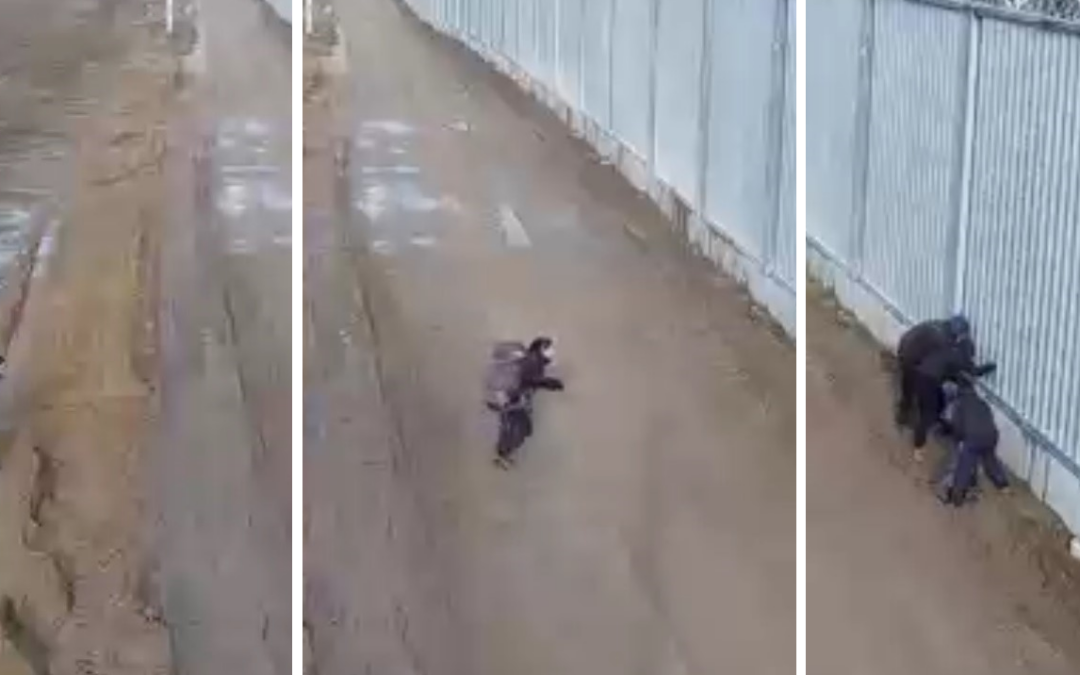A German woman has been expelled from Poland and banned from entering the country for five years for repeatedly violating a ban on civilians accessing the area along the border with Belarus where the Polish government recently constructed a wall to prevent crossings by migrants.
The 26-year-old was part of a group spotted by an electronic monitoring system throwing packages through the border wall from the Polish to the Belarusian side. Border guards were dispatched to detain them, and found that the group contained three Polish nationals, two Germans and one Swiss citizen.
It was established that five of the group had violated the ban on entering the strip along the border, resulting in them being issued with 500 zloty (€107) fines, which they refused to accept. In such cases, the fines can be enforced in court.
It was also ascertained that, in the case of one of the Germans, it was not the first time she had illegally entered the border area. As a result, she was issued with an order to leave Poland within five days, after which she was barred from entering the country for five years, announced the border guard.
26-letnia ob.Niemiec,która kilkukrotnie złamała zakaz wejścia na pas drogi granicznej przy granicy🇵🇱🇧🇾 otrzymała decyzję o wydaleniu z Polski w terminie 5 dni z zakazem wjazdu obowiązującym na 5 lat.
Niemkę oraz jej towarzyszy zauważyli operatorzy #barieraelektroniczna ⬇️
1/2 pic.twitter.com/Rg0FIJAmJv— Straż Graniczna (@Straz_Graniczna) March 1, 2023
In its statement, the border guard also rejected “false information regarding the event in some media, distorting the situation”. It said that the woman was detained and dealt with in a “cultured, polite manner and in accordance with applicable regulations”.
That was presumably a response to claims by Grupa Granica – an NGO that helps migrants and asylum seekers – that border guards had used “verbal violence”, including “profanity and xenophobic expressions”, towards the group of activists.
Grupa Granica also argued that the move to expel the German woman from Poland was “groundless” because, under Polish law, EU citizens “can only be expelled if it is required for reasons of defence or state security or their stay poses a threat to public health”.
The NGO said that it is, in fact, the border guard that “grossly violates the law every day” through its treatment of migrants at the border. A number of Polish courts have found the border guard’s use of so-called “pushbacks” against migrants to be unlawful.
In the summer of 2021, thousands of migrants and asylum seekers – mostly from the Middle East, Africa and Asia – began trying to cross into Poland from Belarus. They were encouraged and assisted in doing so by the Belarusian authorities, in what the Polish government and EU called a “hybrid action”.
In response, Poland last year constructed a wall and electronic monitoring system along the border, which has contributed to a significant decline in the number of irregular crossings.
However, NGOs and human rights groups have noted that a humanitarian crisis continues at the border, where many migrants still hope to cross. In December, a funeral was held in Poland for a Sudanese man who drowned in a river that runs along the border. He was at least the 20th person to die while trying to cross.
In January and February this year, seven bodies were found at the border, reports Grupa Granica, bringing the total number of deaths since the start of the crisis to 37.
A young Sudanese man who drowned in a river on Poland’s border while trying to cross from Belarus has been buried in a funeral organised by the local Muslim community.
He is one of at least 20 to have died at the border since last year https://t.co/TDWdwp8DHa
— Notes from Poland 🇵🇱 (@notesfrompoland) December 6, 2022
Main image credit: Straż Graniczna

Daniel Tilles is editor-in-chief of Notes from Poland. He has written on Polish affairs for a wide range of publications, including Foreign Policy, POLITICO Europe, EUobserver and Dziennik Gazeta Prawna.




















